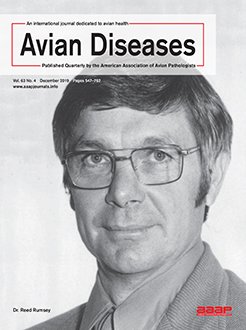The effect of aspirin on intestinal lesions was evaluated in birds undergoing an experimental challenge with Clostridium perfringens as part of a model for inducing subclinical necrotic enteritis (SNE). Broilers were raised on clean wood shavings and randomly assigned to three treatments: Uninfected (U), Infected (I), and Infected + Aspirin (I+A; 0.025% acetylsalicylic acid in drinking water during days 21–25). Birds in the I and I+A groups were gavaged with Eimeria maxima on day 18 and their feed was inoculated with C. perfringens (1 × 109 CFU/bird) during days 23–25. On day 26, birds were euthanatized, intestinal lesions were evaluated, and intestinal tissue was collected for qPCR assessment of genes thought to be involved in the immune response to SNE: IL-1β, IL-10, MMP-2, and MMP-7. Birds in the I+A group had more-severe and numerous lesions compared to the I group. For all genes except MMP-2, expression was upregulated in the I group compared to the U group, but did not differ between the I and I+A groups. These results indicate that aspirin exacerbated the intestinal lesions associated with this disease. Aspirin could play a role in the development of a reliable and consistent model for the induction of necrotic enteritis under experimental settings.
How to translate text using browser tools
29 August 2019
Effect of Aspirin on the Intestinal Response to a Necrotic Enteritis Challenge
A. G. Lorenzoni,
I. Rojas-Núñez,
A. F. Moore
ACCESS THE FULL ARTICLE

Avian Diseases
Vol. 63 • No. 4
December 2019
Vol. 63 • No. 4
December 2019
aspirin
Clostridium perfringens
Intestine
model
necrotic enteritis




